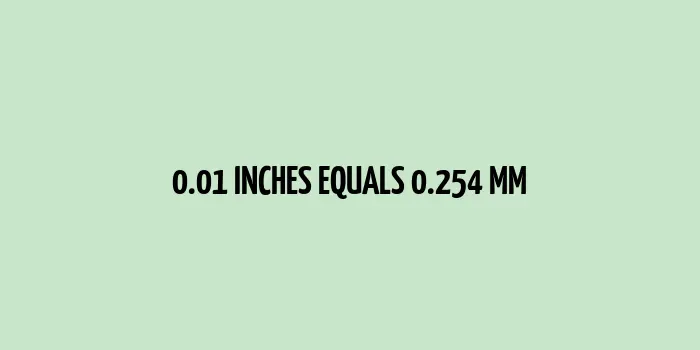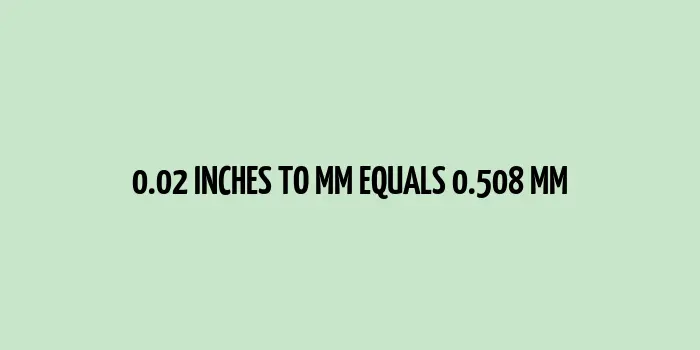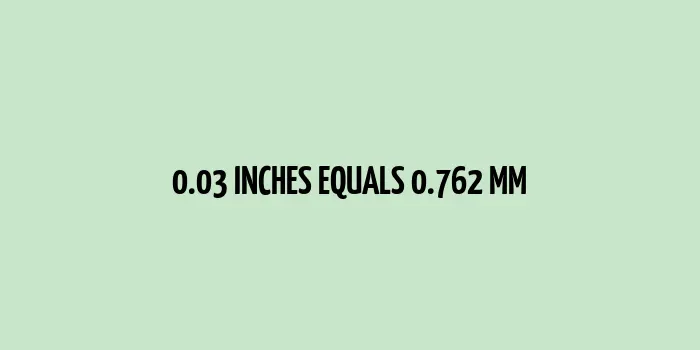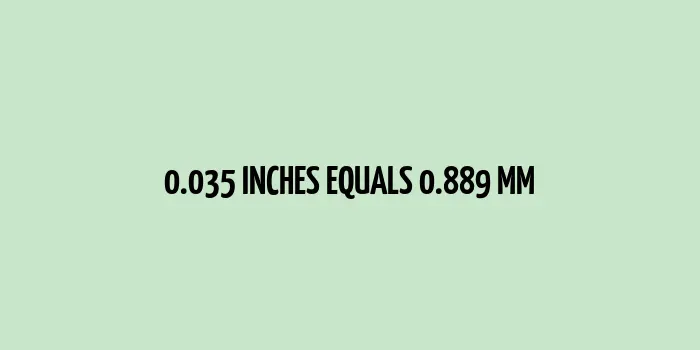1.6 inches to mm (Inches to Millimeters)

Here is how to easily convert 1.6 inches to mm
1.6 inches to mm is exactly 40.64 millimeters.
When you're dealing with measurements, converting from inches to millimeters is crucial, especially in fields like engineering, manufacturing, and even daily DIY projects. Knowing how to efficiently switch between these units can save you time and ensure precision. To convert inches to millimeters, simply multiply the length value by 25.4. This equation holds because there are 25.4 millimeters in one inch. So, for 1.6 inches:
1.6 inches * 25.4 = 40.64 millimeters.
Understanding the Conversion and Its Importance
Converting inches to millimeters can seem straightforward but holds substantial importance. For example, a manufacturing defect of just a millimeter can lead to significant losses. According to a study by the National Institute of Standards and Technology, the U.S. manufacturing industry loses around $25 billion annually due to measurement inaccuracies. Precision is key, and knowing such conversions helps maintain it.
Why Convert 1.6 Inches to mm?
Using millimeters instead of inches can provide greater accuracy for small measurements. 1.6 inches to millimeters is a frequent conversion because 1.6 inches is a common size in various applications like tubing, small electronic components, and basic crafting materials. Imagine assembling a machine that requires perfect fits; every millimeter counts!
How is it Useful in Daily Life?
Even beyond technical fields, ordinary people find this conversion handy. Did you know that the average width of a human thumb is about 1 inch? Converting this to millimeters allows for more precise tailoring of gloves and other fitted accessories, which can dramatically improve comfort.
Video Content and Tutorials
Many use online resources like YouTube tutorials to convert 1.6 inches to mm. These platforms offer practical demonstrations and step-by-step guides, making it easier for those who struggle with numbers.
Statistics Reflecting the Need for Conversion
- The global 3D printing industry, valued at $13.78 billion in 2020, highlights the critical need for accurate conversions, as precision is fundamental to creating successful prints.
- The demand for precision in the automotive industry, which is projected to reach $9 trillion by 2030, further emphasizes why accurate conversions are indispensable.
When accuracy is pivotal, switching from inches to millimeters ensures your measurements are as precise as possible.
FAQs
How to convert 1.6 inches to mm using a calculator?
To convert 1.6 inches to mm using a calculator, simply multiply 1.6 by 25.4. This gives you 40.64 millimeters. So, type '1.6 * 25.4' into your calculator.
Why do we multiply by 25.4 to convert inches to millimeters?
We multiply by 25.4 because one inch equals exactly 25.4 millimeters. This standard conversion factor simplifies the process of switching between these two units of measurement.
What other tools can help with the conversion?
Various online tools and mobile apps are designed specifically for unit conversions, including converting inches to millimeters. Websites like UnitConverters.net offer user-friendly interfaces for quick calculations.
Is 1.6 inches a common measurement?
Yes, 1.6 inches is a common measurement in many fields, from piping and tubing to electronic components and artisanal crafts. Its conversion to millimeters is frequently required for precision work.
Accurate measurements ensure successful outcomes, whether you're in the tech industry, manufacturing, or simply doing home improvement projects. With the right conversions at your fingertips, you'll find every task simpler and more precise. Keep this guide handy for the next time you need to convert inches to millimeters!
By accurately understanding how to convert inches to millimeters, you can ensure all your measurements are spot on, avoiding costly mistakes and rework.





